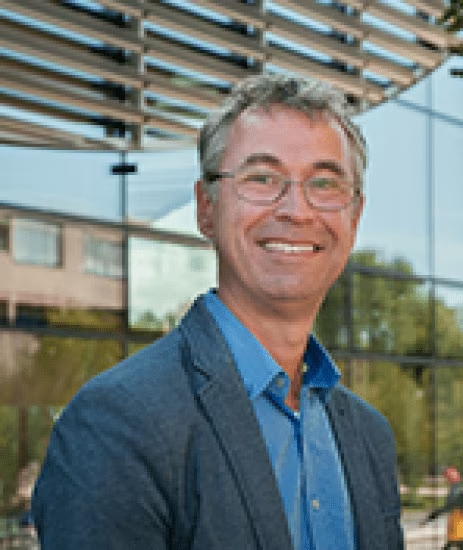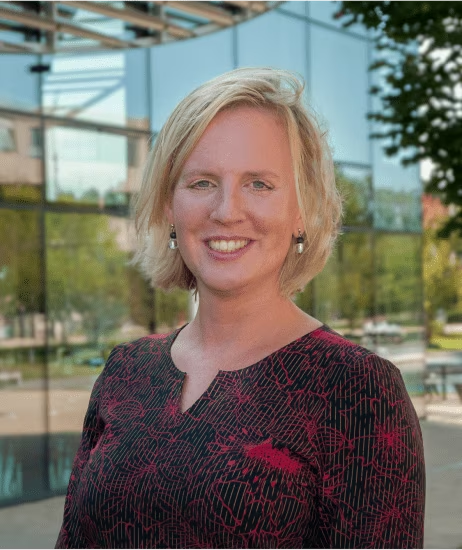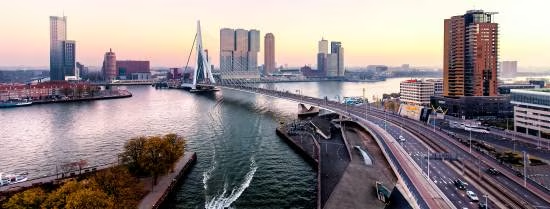What are we researching?
The WijkOnderzoeksCollectief Rotterdam is a programme in which Rotterdammers and scientists together set up and conduct research into issues in Rotterdam neighbourhoods on themes that residents themselves consider important. This could, for instance, concern the quality of the living environment, dealing with poverty and access to care and assistance services.
Together with researchers from Erasmus University, Delft University of Technology, Rotterdam University of Applied Sciences and Erasmus Medical Centre, residents develop knowledge in various neighbourhoods to better understand and tackle the issues in the neighbourhoods. Indeed, much of this knowledge already exists among neighbourhood residents, neighbourhood cooperatives and resident initiatives themselves. What is needed to gather and deepen this knowledge is the establishment and maintenance of reciprocal relationships between scientists and residents.
How does our research make an impact?
Scientific research on issues at the neighbourhood or district level does not always have a positive impact. With so much research taking place in certain neighbourhoods, residents are overloaded and increasingly becoming 'research fatigued'. The city, its communities and active, resourceful residents are then merely the subject of study and analysis, without benefiting themselves.
The WijkOnderzoekscollectief Rotterdam (Rotterdam District Research Collective) is looking for pioneering cooperation based on principles such as reciprocity, proximity, equality, continuity and justice. Reciprocity, for example, means that as a researcher, you not only come to 'get' knowledge and information in a neighbourhood or district, but also that you come to 'bring' something that will benefit a neighbourhood. This could be that researchers do something meaningful for a neighbourhood such as cook a meal, do chores, or create a place or that during the research respondents are paid fairly for their time.
And importantly, what happens after the research? For instance, can researchers formulate measures together with local residents to tackle problems or put them on the agenda with the municipality and other organisations in the city? And in what (creative) ways can we collectively share research findings?
How do we conduct research?
We are conducting this research in various neighbourhoods of Rotterdam, collaborating with various residents (collectives), such as in the Afrikaanderwijk, Tarwewijk, Reyeroord, Schiebroek and Delfshaven. Through various initiatives, we explore how reciprocal research, in which residents take an active role as researchers, can take shape. We monitor this and question our insights to actively learn from each other.
During research, trust and equality are important principles. This means that the way we give research form and content is also different. As researchers, we tap into existing social networks in a neighbourhood and build reciprocal relationships by, for instance, participating in neighbourhood activities. This changes the role of researchers; instead of having a monopoly on knowledge, we now start with a blank sheet. Together with residents and/or neighbourhood cooperatives, we discuss which issue is important, how the corresponding research questions should be formulated, what knowledge and information is already present in the neighbourhood to answer these questions and which residents possess this knowledge. For example, is it possible to train residents as "neighbourhood researchers"?
In this way, neighbourhood and experiential knowledge, skills, relationships and other expertise find their way into scientific research and jointly formulated measures can be translated and offered for policy and implementation.
Projects
| Title of research | District/area | Researchers/stakeholders |
|---|---|---|
| Sustainable living and care Schiebroek | Schiebroek | Peter Marks (EUR) |
| Recht Op Reyeroord 2 | Reyeroord | Emiel Rijshouwer (Design & Publics/EUR) Els Leclercq (TUD) |
| Data donation | Afrikaanderwijk & Vreewijk | Emiel Rijshouwer (Design & Publics/EUR) Els Leclercq (TUD) |
| Context-rich learning environment WIECK | Hillesluis | Gert-Joost Peek, Angela van der Heijden (pgr. Manager), Irene Baten (onderzoeker) (Hogeschool Rotterdam/WIECK) |
| Kennismeent | Tarwewijk | Wenda Doff (Tarwekracht) |
| n.t.b. | Delfshaven | Robbert de Vrieze, Klaske van der Veen (Delfshaven Coöperatie) |
| My Beverwaard | Beverwaard | Warda Belabas, Britt Boeddha van Dongen en Wesley Hennep (Vital Cities and Citizens) |
Research team
 Seline Westerhof, MScResearcher GovernEUR, coordination and contact of the Neighbourhood Research Collective.
Seline Westerhof, MScResearcher GovernEUR, coordination and contact of the Neighbourhood Research Collective. Jelle Burger, MSc (RDI)Thematic leader at the Resilient Delta initiative through the TU Delft Innovation and Impact Centre
Jelle Burger, MSc (RDI)Thematic leader at the Resilient Delta initiative through the TU Delft Innovation and Impact Centre Dr. Mike DuijnManager VCC / Researcher & Managing Director GovernEUR
Dr. Mike DuijnManager VCC / Researcher & Managing Director GovernEUR Prof. dr. Jurian Edelenbos (VCC)Professor & Academic director Vital Cities and Citizens initiative
Prof. dr. Jurian Edelenbos (VCC)Professor & Academic director Vital Cities and Citizens initiative Ir. dr. Beitske Boonstra (RDI)Assistant professor Governance & Pluralism and Theme lead Resilience Delta Initiative
Ir. dr. Beitske Boonstra (RDI)Assistant professor Governance & Pluralism and Theme lead Resilience Delta Initiative Dr. Jiska EngelbertAssociate professor in the Department of Media and Communication and theme lead of Smart Cities and Communities within Vital Cities and Citizens
Dr. Jiska EngelbertAssociate professor in the Department of Media and Communication and theme lead of Smart Cities and Communities within Vital Cities and Citizens
Funding
The project is jointly funded by the Resilient Delta initiative and Vital Cities and Citizens and supplemented by external resources where appropriate.
Partners
- Afrikaanderwijk Coöperatie
- Hogeschool Rotterdam/WIECK
- Resilient Delta Initiative
- Labyrinth Rotterdam
- Technische Universiteit Delft
- Design&Publics
- Delfshaven Coöperatie
